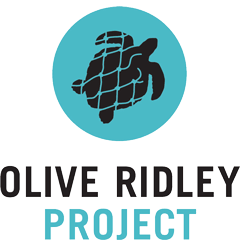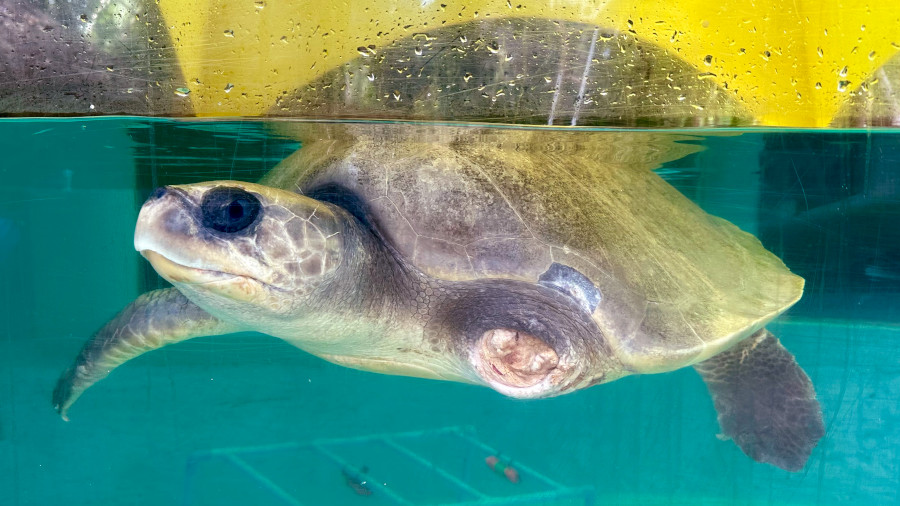
ORP’s Veterinary Training Programme offers a rare opportunity for veterinary surgeons working with exotics or wildlife to gain hands-on experience in sea turtle conservation medicine within a teaching hospital environment. Our clinical facilities in the Maldives are among the few in the world where olive ridley turtles are treated in a hospital setting.
With nearly 50 years of combined experience, our veterinary team is one of the largest and most knowledgeable sea turtle veterinary teams in the region. They are supported by Maldivian interns and international volunteers, creating a dynamic environment for learning, collaboration, and conservation.
About Maldives
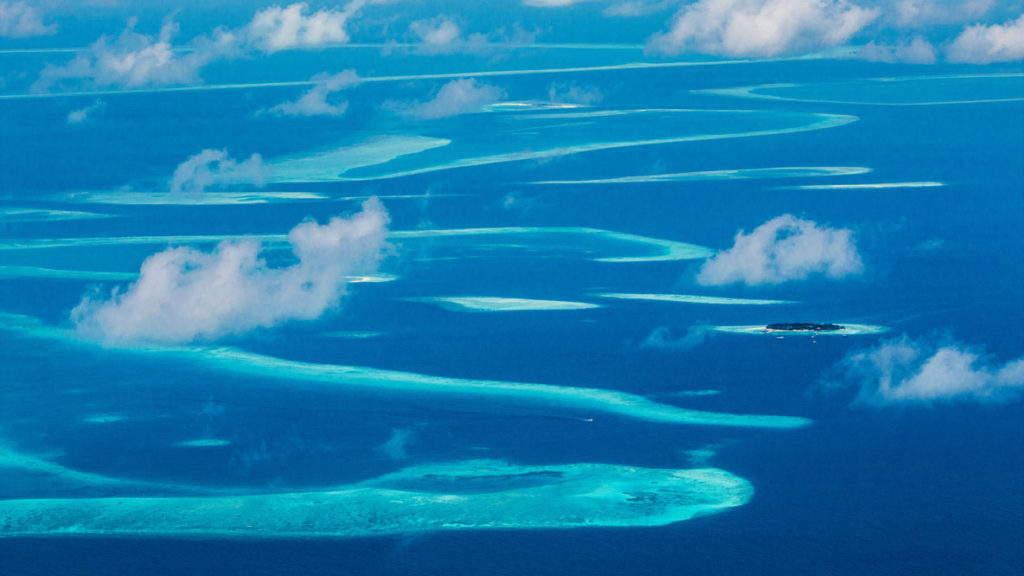
The Republic of Maldives is a nation of coral islands situated in the Indian Ocean. The country spans roughly 90,000 square kilometres divided into twenty-six atolls with approximately 1190 islands. It is the smallest Asian country by both land area and population (with just over 500,000 people!). Maldives is famous for its sandy white beaches, crystal clear turquoise waters, beautiful coral reefs, and colourful marine life. It truly is magical, both over and under water!
About ORP

Olive Ridley Project (ORP) was established in 2013 to actively fight ghost gear in the Indian Ocean. Since then, we have expanded our mission to take a multifaceted and holistic approach to protecting sea turtles and their habitats. We do this through rescue and conservation medicine, scientific research, and educational outreach.
We operate several clinical sea turtle facilities in the Maldives, and run one of the largest sea turtle Photo-ID databases in the world. We have team members stationed in six atolls in the Maldives as well as in Kenya, Oman, Pakistan, and Seychelles. You can meet the team here and read more about the Olive Ridley Project here.
ORP is a registered charity (1165905) in England & Wales, the Maldives (CR/04/2022), and in Kenya (NGO-EPFPJ6).
About the Marine Turtle Rescue Centre

The ORP Marine Turtle Rescue Centre opened in February 2017 in collaboration with Coco Collection at Coco Palm Dhuni Kolhu in Baa Atoll. It was the first fully equipped, veterinary surgeon-led rescue centre for sea turtles in the Maldives. Today, it remains a unique facility globally, treating mostly olive ridley turtles. MTRC has admitted more than 260 patients since then, with over 150 successfully released back to the wild. Our release rate of ~60%, is a significant achievement in wildlife conservation medicine.
Most of our turtle patients are ghost gear and marine debris entangled victims. We also have patients who have been found floating, diseased, or injured by blunt force trauma. Olive ridley turtles make up the biggest patient numbers.
About the clinic

The clinic at the Marine Turtle Rescue Centre is the most advanced sea turtle medical facility in the Maldives and functions as a teaching hospital. It is equipped with:
- A full diagnostic and blood laboratory
- Pharmacy
- Microscope
- Class-4 therapeutic laser
- Ultrasound
- Endocsope
- Digital radiography system
- A full surgical suite
We are able to triage and treat any injury or condition faced by sea turtles in Maldivian waters. We also serve as an expert resource for other rescue centres in the country and region, as well as for the Maldivian government.
About the patient tanks
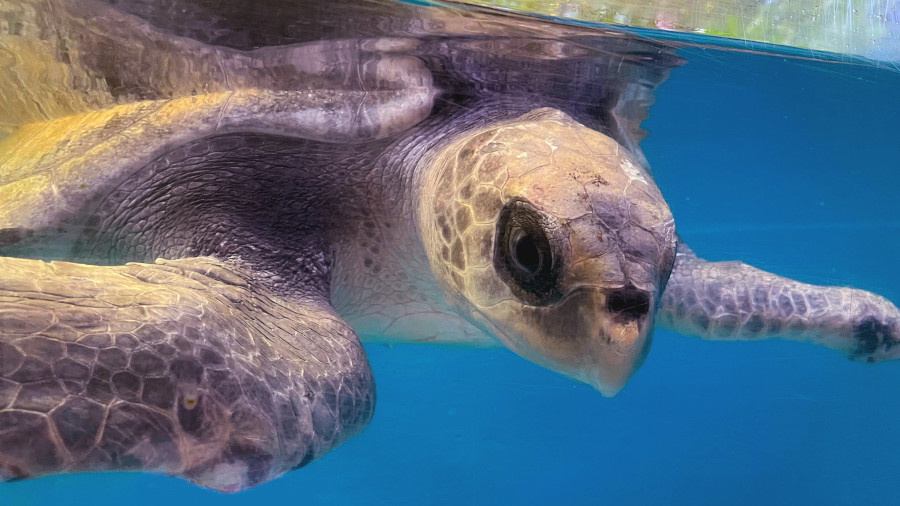
There are seven patient tanks in the Marine Turtle Rescue Centre. The tanks can be considered analogous to a patient bed in a human hospital. This is where our patients spend most of their time while under our care.
The patient tanks are divided into staging areas based on the specific condition or procedure being performed. This includes smaller tanks for critical patients requiring more specialised care and observation to larger tanks for patients nearing release to the wild.
Adjacent to the tanks is our outdoor procedure area, where we perform minor procedures, examinations, therapies, and patient hygiene.
About the training experience
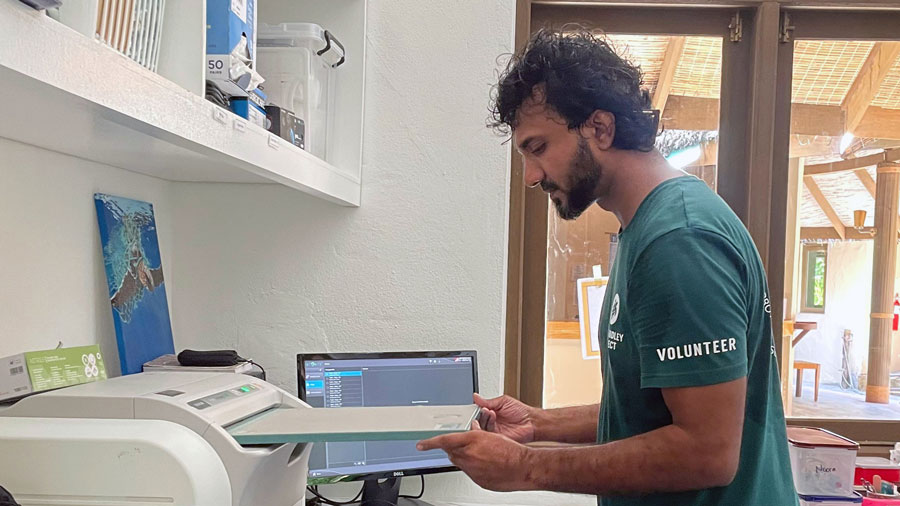
The Rescue Centre is a very busy facility. Our patient census can vary widely based on many factors, including weather patterns, seasonality and patient capacity. A typical day will include:
Once or twice weekly, we hold grand rounds with the on-site team and the lead veterinary surgeon. This is when we discuss complicated cases and specific aspects of sea turtle medicine.
- Rounding on patients with the on-site team
- Preparing and administering diets
- Performing routine elective procedures like blood draws, CBCs and clinical chemistry evaluations physical exams, diagnostic imaging, photobiomodulation therapy, acupuncture and wound care
More complex procedures are often done on a semi-elective basis. These include surgery, centeses, deep wound debridements, endoscopic and contrast studies, and regenerative medicine therapy. Since we function as a 24/7 facility, emergency admissions may occur at any time.
Clinical research is an important component of our mission. We have several projects ongoing at any given time at the Centre, providing ample opportunities to get involved in our research. Indeed, we encourage our visiting veterinarians to actively participate in these efforts.
About the Veterinary Training Programme
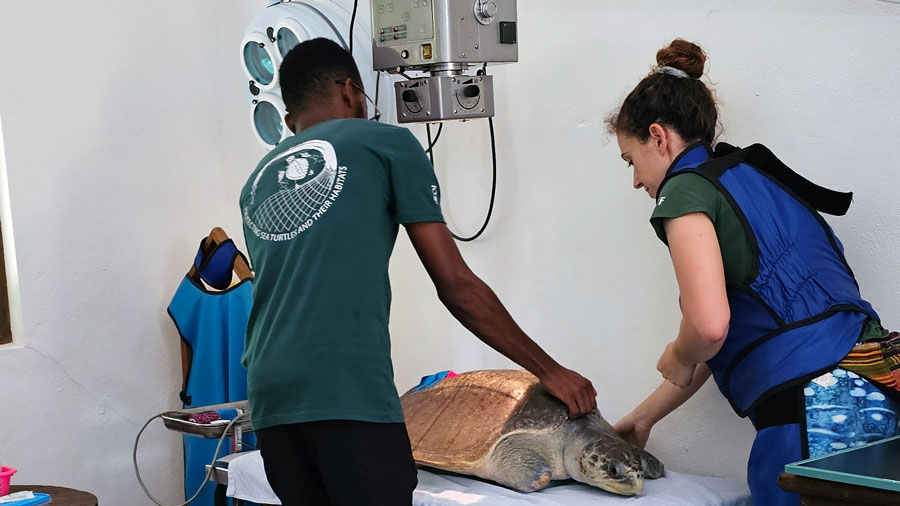
We welcome veterinary surgeons to join us for three weeks of intensive training, combining clinical skill development with didactic instruction all year round.
Our programme’s primary mission is to train clinicians from countries where sea turtle medicine is the primary clinical practice, with a special focus on training veterinary surgeons from our neighboring countries. We are committed to providing this training without charge, acknowledging the challenges associated with specialised veterinary training for clinicians from countries with limited resources.
To provide this resource, we require a modest contribution from veterinary surgeons from other countries to support this training and the operations of the centre. The fee for 2026 is £1,900 for three weeks, excluding return international and domestic flights.
Eligibility for the funded programme is limited to veterinary surgeons who are citizens of, and currently working in, under-resourced regions, as defined by the UNDP’s Human Development Index and, with limited access to specialised veterinary training. Places are offered by invitation following a review of qualifications and experience, to ensure the programme reaches clinicians who will benefit most and can apply their skills within their local contexts.
Testimonials
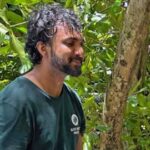
“I am a veterinarian working in both the private and public sectors in the Maldives, with a strong interest in exotic wildlife medicine. It was a pleasure to take part in the ORP Veterinary Training Program, where I had the chance to learn a great deal about sea turtles, other marine animals, and wildlife medicine. The training was hands-on, informative, and a lot of fun. I’d definitely recommend it to anyone interested in learning more about turtles and how to work with them.
– Dr Misfah, Maldives
Sea turtle medicine is incredible, but don’t expect them to cooperate. Their favorite position to be is, “anywhere but how you want me to be.”
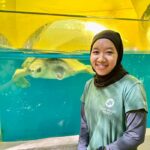
“I’m really grateful for the chance to join the ORP Veterinary Training Programme for three weeks. It was such an amazing learning experience! I got to expand my knowledge of sea turtle medicine and gain lots of hands-on experience with guidance from Dr. Mariana on-site and great lectures from Dr. Max. On top of that, I met some incredible people and made wonderful friends along the way.”
– Dr Naul, Indonesia
How to apply for the Veterinary Training Programme
Applications are now open for ORP’s 2026 Veterinary Training Programme.
Please note that applicants must be qualified veterinary surgeons to be considered. You will be asked write a brief cover letter and upload your CV in PDF format as part of the application process.
We receive a high number of applications and may take up to three weeks to respond.

